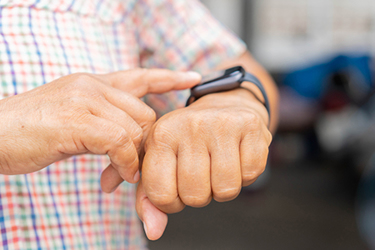Real-World Evidence In Clinical Trials

Recent technological innovations have expanded the potential for the collection of real-world evidence (RWE) in clinical trials. Through patients’ personal devices, fixed in-home sensors, or third-party wearable devices (e.g., Fitbit) and biological sensors, researchers can now collect ecologically valid data representing a wide array of constructs (e.g., geolocation, activity, sleep quality, air quality). Data collected in this manner can be less subjective than traditional patient reported outcome (PRO) measure completion. Operationally, incorporating RWE technology can reduce costs associated with clinical research by allowing for data collection standardization and the decentralization of trial management.1 Such technologies are well tolerated by clinicians, hospital staff , and patients.2,3 For example, patients participating in a clinical trial using smartphone geolocation to alert clinicians to emergency room visits reported increased reassurance regarding their care quality and access.4 Clinicians and caregivers of individuals with Alzheimer’s disease report overwhelming interest in wearables and sensors to facilitate care management and maintain patient safety.2
Get unlimited access to:
Enter your credentials below to log in. Not yet a member of Clinical Leader? Subscribe today.
